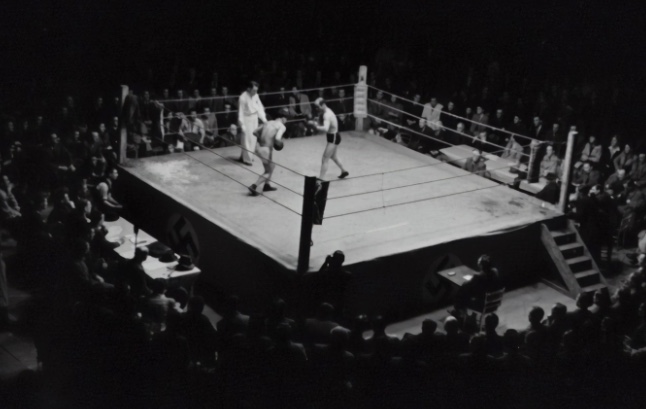A Journey Back in Time: History of Betting In the UK

Today, the Gambling Commission in the UK licenses all forms of gambling, making them legal as long as the people organizing them follow the right procedure. However, this wasn’t always the case. Luck-based games had to undergo a long evolution to reach their current state.
Sure, there were no casinos in the medieval era (at least not in the modern sense), but this doesn’t mean that there was no betting. After all, even the Romans used to bet (on everything from gladiator fights and chariot games all the way to enjoying dice-based games), and they inhabited these islands long before the Normans and Saxons. Still, there’s no need to go that far.
So, let’s take a quick overview of the history of betting in the UK over time.
Now, as our title suggests, we’ll start with the modern era and track back to see how far in the past we can actually go.
Betting in the present-day UK
The Gambling Commission regulates all legal betting activities in the UK. Before its formation in 2005, gambling laws were outdated and patchy at best. Now, operators need a license, and strict rules ensure fairness, consumer protection, and measures against problem gambling. The commission also continuously updates regulations to keep up with modern gaming trends, especially online betting and digital casinos.
Physical casinos remain an essential part of the UK’s betting culture, though their dominance has faded compared to a few decades ago. They offer the classic casino experience—roulette, blackjack, poker, and slot machines—in an environment filled with high stakes and excitement. Still, rising operational costs and competition from online platforms mean many smaller casinos have struggled to survive.
Online casinos have taken over as the most convenient way to bet, and it’s easy to see why. With a few clicks, players can access thousands of games, live dealer experiences, and real-time sports betting. Moreover, the accessibility factor has made them a favorite among casual gamblers. Deposit options, crypto payments, and bonuses make the experience even more appealing, keeping players coming back.
Gamstop exists to help people control their habits, but not everyone wants to be restricted. A growing number of platforms operate outside of Gamstop, giving players more freedom to choose where and how they bet. Many see these sites as a great alternative since they offer fewer restrictions, better bonuses, and more payment options. The non-Gamstop casinos mentioned on the shortlist of 2025 often feature other tools for players to limit their time spent gambling, such as time-outs, deposit limits, and reality check notifications.
The Betting and Gaming Act of 1960
The Betting and Gaming Act of 1960 changed everything for UK gambling. Before this, most forms of betting were illegal outside of specific locations like racetracks. However, this act legalized betting shops, allowing people to place bets in regulated environments. Also, by bringing gambling into the open, the law reduced black-market betting, giving consumers safer options.
The new regulations also allowed commercial casinos to emerge in the UK. For the first time, people could legally play table games like poker, roulette, and blackjack outside of exclusive private clubs. However, there were still restrictions: casinos had to operate as membership-based establishments.
Horse racing betting surged in popularity after the act passed. Before this, horse racing was one of the few sports where gambling was tolerated, but placing bets legally was a hassle. With betting shops now allowed to operate, horse racing became even more mainstream. Bookmakers also quickly adapted, offering more competitive odds and live coverage of races.
Under this law, controlled gambling environments became a priority. The government wanted to ensure that betting remained a recreational activity rather than a societal problem, so strict licensing requirements, advertising rules, and anti-fraud measures were implemented.
The 19th-century betting boom
The 19th century was a golden age for horse racing and betting, not just a booming era on the Isle of Wight. More racetracks popped up across the UK, and major events like the Grand National gained massive followings. This period solidified horse racing as the “Sport of Kings,” with both aristocrats and working-class people participating in the excitement of wagering on races.
Unregulated betting houses also became a problem. These places sprang up in cities and towns, offering all kinds of wagers with little to no oversight. Some operated fairly, but many were shady, with dishonest bookies taking advantage of players. Moreover, this lack of regulation led to a rise in gambling addiction and financial ruin for many bettors.
New laws were introduced to curb gambling-related issues. The government recognized that betting wasn’t going away, but it wanted to prevent it from spiraling out of control. While these laws made it harder for underground betting houses to thrive, they weren’t always effective, as people found ways to gamble regardless.
Government intervention in gambling grew during this time. Authorities became more interested in regulating and taxing the industry, leading to the first structured gambling laws. These early efforts set the stage for future reforms, shaping the controlled betting environment seen in modern-day UK gambling.
The 18th century and the gambling craze
The 18th century saw the rise of exclusive gambling clubs among the aristocracy. These establishments were the playgrounds of the wealthy, where fortunes were made and lost over card games and dice. Gambling wasn’t just a pastime – it was a status symbol. Winning big could elevate one’s social standing while losing everything could mean financial ruin.
Lotteries became wildly popular during this period, and the government even used them to fund public projects. Unlike private betting, which was often frowned upon, state-sponsored lotteries were seen as legitimate ways to raise money. They were accessible to the masses, giving everyday people a chance to win life-changing sums—though, more often than not, they didn’t.
People bet on all sorts of things, from duels to cockfighting. The unpredictability of these events gave them thrilling gambling opportunities. Wagers weren’t just about money – some bet land, livestock, or even personal belongings.
As gambling culture grew, so did moral concerns. Many viewed excessive gambling as a dangerous vice that led to debt and corruption. Moreover, religious groups and lawmakers pushed for tighter restrictions, though enforcing these laws was easier said than done.
Middle Ages and Roman era
Dice games were one of the most common forms of gambling among peasants in medieval England. With few entertainment options available, a simple pair of dice provided endless amusement – and a chance to win or lose whatever little money they had.
Jousting tournaments weren’t just displays of skill and bravery; they were also prime opportunities for betting. Spectators would place wagers on their favorite knights, hoping to profit from their success.
Gladiator fights were among Roman-occupied Britain’s most popular betting events during the Roman era. These brutal contests weren’t just about entertainment—they were high-stakes affairs in which spectators wagered on their favorite fighters.
Dice games were played everywhere, from military camps to Roman households. Soldiers gambled their wages, while civilians played for fun or serious profit. Moreover, these games were simple yet addictive, making them a staple of Roman-era gambling culture.
Conclusion
Looking back, it’s clear that gambling has always been part of British life, no matter the era. Whether it was knights betting on jousts, Romans wagering on chariot races, or modern players in online casinos, the thrill of placing a bet has never faded. Also, while laws and regulations have changed over the years, the fundamental appeal remains the same – the chance to test one’s luck.
Spotted something? Got a story? Send a Facebook Message | A direct message on Twitter | Email: [email protected] Latest News









